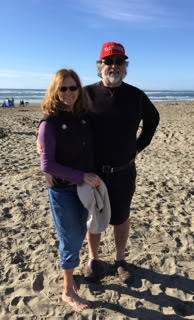Building Unity Through Sharing the Eight-Point Program
/Deepa and Vasanth are two young adults living in Chennai, India. They started a regular satsang for young adults. Recently, they were also asked to run an introductory course in passage meditation for a local center offering support and courses to underprivileged young people.
This is the Chennai YA satsang, with Deepa pictured in the front-middle.
The papers these YA’s are holding up are handouts with mantrams and passages.
Deepa
I first got a glimpse into Sri Easwaran's teachings when I picked up his beautiful book Meditation from a friend's bedside table. In an instant, I knew it was what I had been looking for all my life. After years of reading spiritual literature, self-help books, and books on the law of attraction and the subconscious mind, with Meditation, I realized I had finally come home! And life has never been the same. I cannot count the number of ways in which Sri Easwaran's teachings have impacted and helped me. I have also, ever since always felt a guiding hand with me. Someone I can communicate with through troubled times, someone I can look up to for support at all times.
How I wish I had found Easwaran earlier in my life! How much easier and more beautiful everything would have been. And so when it was suggested we help young adults in India through Sri Easwaran's teachings, I jumped at the idea. It's been 6 months since we started our young adult programme in Chennai, India. India is a country that is already burdened with religion and ritual. People are raised with strong beliefs. It's sometimes a challenge to make people step outside it all and look at life just as it is…to bring in the idea that just living a kind, disciplined life is enough. Sri Easwaran teaches the recipe for a perfect, peaceful, happy life, right in the midst of our circumstances. He teaches us how to be happy and have good relationships. We strongly believe that it's the need of the hour for young adults and we are really happy to be helping with this. We thank everyone at the Blue Mountain Center for keeping Sri Easwaran's teachings alive.
Vasanth
We jumped at the idea when the idea of a young adult satsang was proposed. The thought that we were going to spread Sri Easwaran's highly effective and practical 8-point program excited us. There was an element of anxiety as well, as were unsure if our approach would work.
Nevertheless we started in right earnest. We came up with a format for the sessions. We spread the word to colleges and through our senior satsang group. We put together handouts consisting of passages and mantrams for young adults.
We were overwhelmed by the initial response. Close to 30 young adults attended the first session. It was a joy to teach passage meditation and meditate together.
There have been close to half a dozen sessions. We believe we coordinate the sessions for our own healing. It has helped us to deepen our practice as well. As Sri Krishna tells Arjuna in the Gita, we see ourselves in other young adults and other young adults in us. The unity is undeniable.
Here are two photos from an event with a group of 55, who gathered together for the one-time introductory course to passage meditation as part of their educational training.
Here are just two comments from the group about their experience in the introduction to passage meditation and the 8 points.
“I pledge I will meditate every day, control my stress and emotions. I will thereby develop my self-confidence.” – Keerthika
“My immediate goal is to start meditation on a regular basis. I will definitely apply what I have learnt.” – Gladiya









